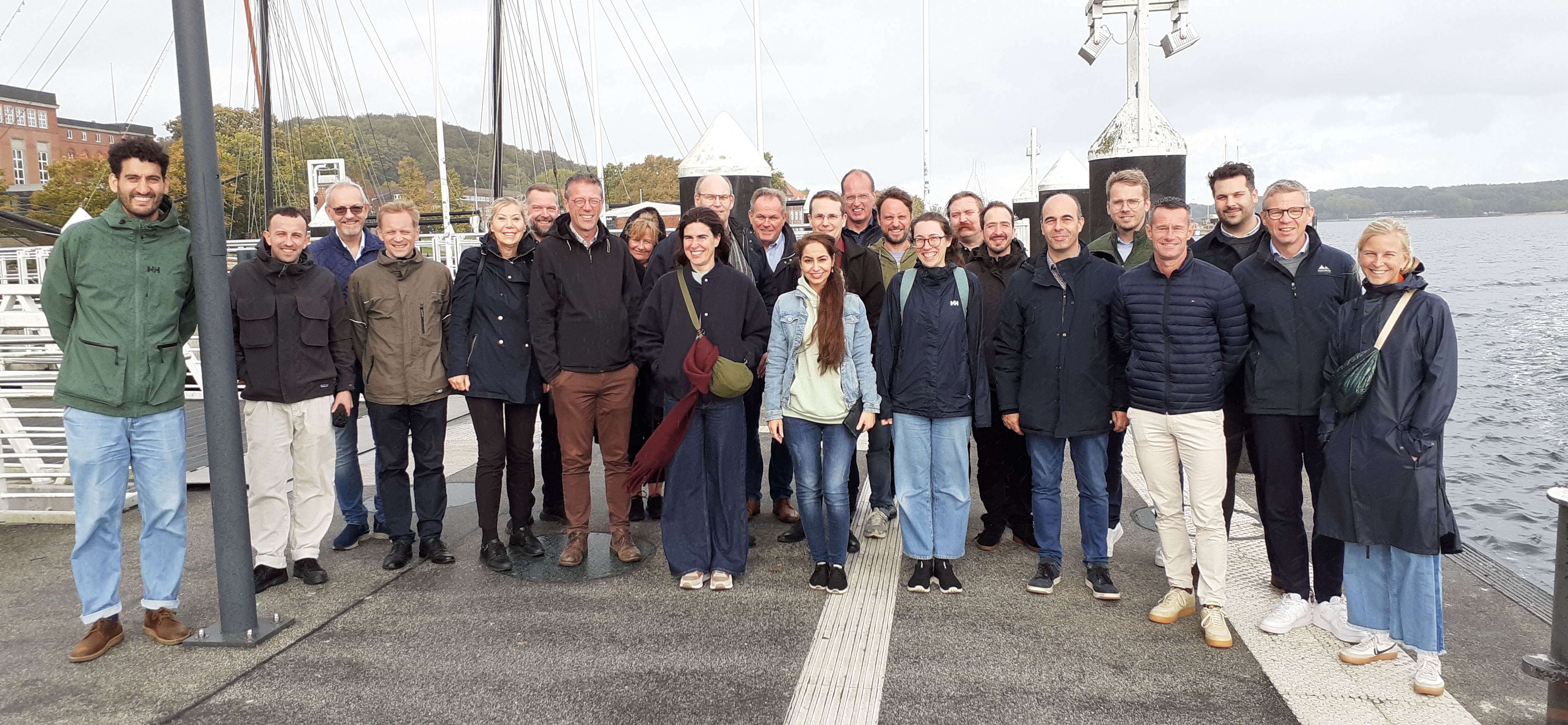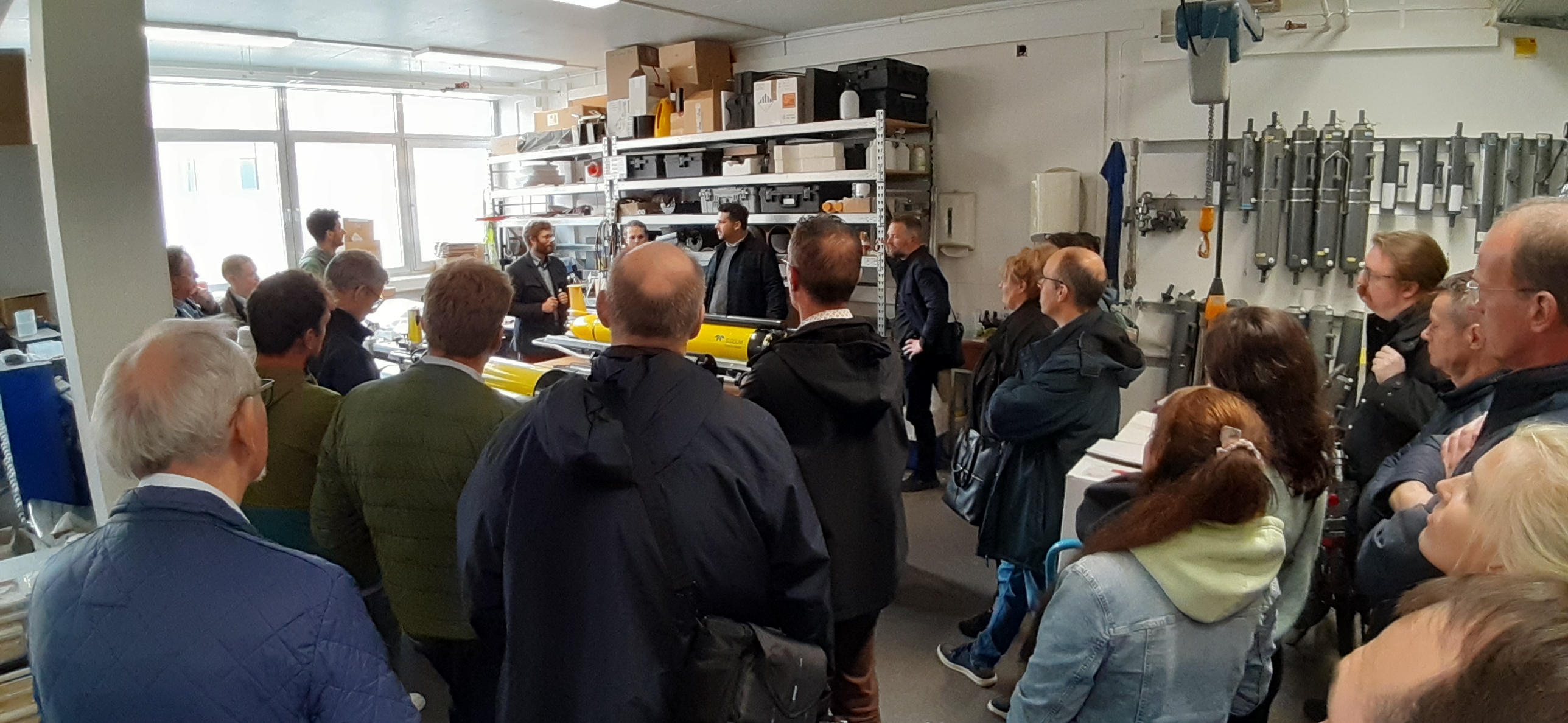Data for All partners gathered in Kiel, Germany on 8-10 October 2024 for an insightful meeting. We learned about sister “data” projects and initiatives such as SmarterLeben, Digital Twin Ocean, ODALA and Gaia-X, as well as their challenges and lessons learned. Partners also discussed progress of Data 4 All work packages and deliverables: we looked into data Interoperability, development of trainings, involving stakeholders and drafting texts for knowledge pool.

KielRegion is a public company owned by municipalities Kiel, Rendsburg-Eckernförde and Plön. KielRegion participates in the SmarterLeben project. Simon Radtke from KielRegion introduced the project SmarterLeben and the two use cases: Parking with floor sensors and Water levels. Some parking spaces in Kiel are being equipped with parking with floor sensors. In Kiel, an App guides visitors to free parking lots. In Flensburg, it is connected to the dashboards. Water levels sensors are installed in lakes and water reservoirs to measure if there is too little or too much water. Sensors need maintenance, yet this efforts are less resource intensive that previous solutions such as e.g. staff checking water levels regularly or officers monitoring parking spaces.
During the visit to the Helmholtz Centre for Ocean Research Kiel (GEOMAR) partners listened to an intervention on Digital Twin Ocean by Prof. Dr. Florian Schütte (GEOMAR). Partners learned about the waste data collected over the years and challenges in data collection. After the intervention, Florian invited all partners for a guided tour to visit the workshop space, where everybody could get insights into equipment used and its maintenance.
Nicolas Ortiz Kammrath from German-Aerospace-Center (DLR) introduced the Gaia–X principles, initiatives and projects. Gaia-X is an initiative that develops a digital governance that can be applied to any existing cloud/edge technology stack to obtain transparency, controllability, portability and interoperability across data and services.
Benjamin Ditel from the Digitisation Department of the City of Kiel provided insight into the ODALA project. ODALA is a „Collaborative, Secure and Replicable Open Source 'Data Lakes' for Cities”. Benjamin highlighted that flexibility and cooperation were key take-aways from the project.
Azadeh Jalilian from the University of Oldenburg (UoL) made an intervention on UoL research on Data Interoperability. She presented the dimensions, challenges as well as solutions with their advantages and disadvantages. A survey on challenges will be sent to D4A partners in October with reply expected in November from each partner organisation.
Rolf Andre Leidland from Eigersund kommune went through learnings in the Data 4 All pilot in Norway. Partners in Norway have realized that we have not put enough effort into understanding our pilot problem before they started to a process of developing a solution. Rolf Andre encouraged all to question the assumptions and revaluate the process for better results.
The next partner meeting is planned for 6-9 May 2025 in Gothenburg & Kungsbacka, Sweden.

